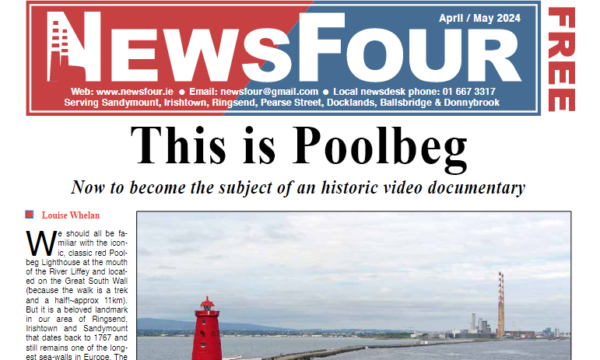Carol Coulter
Aoife Kearney had always wanted to do something to help refugees, but, with the pressure of work and family responsibilities, it never seemed to be the right time. This changed when she saw the footage from Afghanistan as the Taliban took over. “I decided I had to help in some way,” she said.
She contacted the Irish Refugee Council, and was told the best thing was to be involved in a community sponsorship group. Aideen Waters had been in touch with the IRC as well, they met and began to canvass support for setting up a group in the Terenure-Rathfarnham Churchtown area.
The community sponsorship system is overseen by the Irish Refugee Council on be half of the Irish Government’s programme for refugees recognised by the UN, most of whom are in camps in Lebanon and Jordan. It also liaises with the Charities Regulator to ensure that all sponsorship groups meet its standards in their fund-raising.
“The community sponsorship programme helps people integrate much quicker,” said Trevor Keppel, who coordinates this work for the IRC.
“It has two roles, it builds empathetic communities locally and also helps families integrate when they arrive.”
One of the main functions of the community sponsorship groups is to obtain accommodation for the families, according to Rory O’Neill, the IRC’s integration projects manager. “It’s mainly benevolent landlords who buy into the programme, we are usually not going into the open marketplace.” The whole ethos of the programme, he said, is about finding support for the refugee families in the local community, including accommodation.
Using social media, Aoife and Aideen assembled a group within six weeks and applied for approval to the Irish Refugee Protection Programme (IRPP). They were officially recognised in December 2021 and received training from the IRC in January.
Before a family is allocated to an area serviced by a sponsorship group, they must be assured of accommodation and initial financial support to ensure the rent and to meet immediate expenses. The IRC does not consider allocating a family until the group has raised €10,000, to cover immediate expenses and rent before the family comes (it is covered by HAP from when they arrive), so the first task of the group was fundraising, and the group set up a GoFundMe page and began to organise fund-raising activities, which were limited by the pandemic restrictions.
They have raised about €9,000 so far, but Aoife said that the target is €20,000, as the group may have to cover rent for a considerable period before the family comes, given that the collapse of institutions in Lebanon is likely to delay the move of families from refugee camps there. This means that the issue of paying rent while awaiting the arrival of the family becomes even more of a potential expense.
The other main task is finding appropriate accommodation for a family, at a minimum a two-bedroom house or apartment. The group is contacting estate agents in the area, and also appealing on social media to anyone who may have a property to let for a minimum of two years.
There are advantages for a potential landlord, Aideen pointed out. The family has been pre-selected by the UN and is vouched for by the Irish Government, the rent would be guaranteed for two years, and the family would be supported by the group. “We can ensure the property would be looked after,” she said. She added that if someone in the area had a property that needed some attention in order to be suitable, the group would help bring it up to standard.
She also appealed for businesses in the area to sponsor the group. Sponsors will be named on its literature and website.
Other support that may be needed includes help with English, access to sports clubs and other recreational facilities for both adults and children and help in negotiating schools, social welfare and other services. “We won’t know what their need will be until very shortly before they arrive,” Aoife said. “We will be led by the family. Above all we need to make them feel welcome.”
The group will also raise awareness of the plight of refugees and those seeking to flee from regimes like that of the Taliban in Afghanistan. Aideen remembers the impact of the image of the body of the small boy washed up on the Greek shore as his family fled the war in Syria. “We need to take action. We are an example of complete strangers coming together in a common purpose. Every community should be able to do it.”
HomefromHome Dodder can be contacted by email at homefromhomedodder@gmail.com



